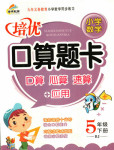题目内容

London has a new magazine. But it is not printed(印刷) on paper. Everyone who has a television can receive it because it is on TV.
In order to read this magazine you have to have a decoder (解码器). Each page of it is numbered, so you only have to dial the number to choose which subject you want to read about. There are all kinds of information ---everything is included from cooking to the latest sports news.
If you want to read the news, the first thing you have to do is to turn to the back page, which has an easy-to-remember page number, 100 for example. Then you start choosing what you want to read. The news is on page 101 to 109, so you put in the numbers and the news appears written across your screen. Perhaps you want to go out in the afternoon, so you press 181, and a brightly colored weather map appears on the screen. But the weather is terrible, so you decide to go shopping and dial 162 for a list of the week’s best bargains. But should you drive or take the train? To answer that question you only have to press 189 for the traffic report. It is very simple to use. But probably the best thing about the service is that it is being updated all the time. Journalists type new material directly onto the screen and the whole pages of the magazine can be replaced in minutes.
London already has three services. One, sent out by TV, is called ORACLE while the other two, on BBC, are called CEEFAX because they let you see facts. Although CEEFAX and ORACLE have been operating for some time, they have not been well publicized(宣传). BBC engineers do not think that their idea will ever replace books and newspapers because they can be taken with you everywhere. But many people would agree that is a breakthrough(突破) as great as the invention of printing, which could not just change our reading habits but our whole way of life.
1. We can know from the passage that in London .
A.the magazine is available at any local home
B.most of the postmen will lose their jobs some day
C.everyone can read this magazine if they have a television
D.the readers can get various kinds of information staying at home
2.In the sentence “Each page of it is numbered,” the word “it” refers to the .
A.magazine B.program C.decoder D.subject
3.According to the passage, the “decoder” is used to help people .
A.work out the total(合计) of certain numbers
B.read the information sent by TV signals
C.go shopping and have other entertainment
D.receive some special TV program for entertainment
4.The passage is mainly about .
A.a new magazine printed in London
B.an up-to-date way of getting information
C.a popular TV program about magazines
D.an advanced technology helping people communicate
1.D
2.A
3.B
4.B
【解析】
试题分析:这篇文章讲述了在伦敦有一种新型杂志是通过电视阅读,它给人们提供了一种新的获取信息的方式。
1.细节题。通过文章可知,在伦敦有一种新型杂志,它是在电视上播放,这样人们呆在家里就可以获取到各种各样的信息。故选D
2.推断题。根据文章 In order to read this magazine you have to have a decoder (解码器). Each page of it is numbered,为了阅读这种杂志,你必须购买一个解码器,杂志的每一页都有数字密码。故it指代的是杂志。故选A
3.细节题。根据文章 you only have to dial the number to choose which subject you want to read about.可知,解码器可以帮助人们阅读一些通过电视发出的信息。故选B
4.主旨题。这篇文章讲述了一种新型的获取信息的方式。故选B
考点:科普类说明文
点评:本文的理解不会出现大的问题,学生在解答此类题目时,首先把握好每段的第一句,尤其是第一段的第一句话,要对其进行仔细的理解,把握中心。本文中细节题在文章找到相对应的地方结合题目进行阅读,对于推断题要联系上下文结合作者的写作意图,在题目中选择最符合的答案。

 培优口算题卡系列答案
培优口算题卡系列答案 开心口算题卡系列答案
开心口算题卡系列答案IQ(intelligence quotient智商)is a score that shows a person’s level of intelligence.
People used to believe that some people are born with a high IQ and some aren’t.
32 , a study by scientist at University College London has challenged(挑战)this idea. According to an article last October on the Journal Nature, scientists are beginning to think that our IQ is not a constant(不变的)score.
The scientists tested 33 healthy young people in 2004 between the ages of 12 and 16. Then they did tests again four years later, when the same people were between 16 and 20.
Scientists found big changes in the IQ scores between 2008 and 2004. Some 33 and some fell 34 as many as 21 points.
To test whether these scores were meaningful, the scientists compared them with results from brain scans(扫描). They found that the IQ changes matched changes in the structure(结构)of the subjects’ brains. “A change in 20 points is a huge 35 ,” said Professor Cathy Price, who led the research. He said it could mean the difference between an average and a 36 person. The team has not found a clear cause for these changes. However, they say it is 37 that education plays a role in changing IQ.
“Here we have shown that children’s 38 is likely to be still developing, ” says Price. “We have to be careful not to write off 39 performers at an early stage. In fact, their IQ may improve in a few more years. ”
| 【小题1】 |
|
| 【小题2】 |
|
| 【小题3】 |
|
| 【小题4】 |
|
| 【小题5】 |
|
| 【小题6】 |
|
| 【小题7】 |
|
| 【小题8】 |
|
London has a population of over 7,000,000. From about the year 1800 until World War II, London was the biggest city in the world. But now there are many cities which are much bigger than it. London is famous for many things. Tourists come from all over the world to visit its famous buildings and hear the famous clock, Big Ben. Like many big cities, London has problems with traffic and pollution which stop the city from developing. Over one million (百万) people a day use the London underground, but there are still too many cars on the streets. The air isn’t clear, but it is anyhow cleaner than it was 100 years ago. For me, the best things about London are the parks. There are five in the city center. But my children’s favorite place is Hamleys, the biggest toy shop in the world.
1.What’s the Chinese for “underground” in the passage?
|
A.隧道 |
B.地铁 |
C.地下 |
D.通道 |
2. When was London the biggest city in the world?
|
A.In 1750. |
B.In 1850. |
|
C.In 1950. |
D.In the 21st century. |
3. What’s Big Ben in London?
|
A.It’s a toy shop. |
B.It’s a park. |
|
C.It’s a clock. |
D.It’s a museum. |
4. How many people use the London underground every day?
|
A.Over half of its population. |
B.Over three quarters of its population. |
|
C.Over 100,000. |
D.Over 1,000,000. |
5. How was the air in London 100 years ago?
|
A.It was much cleaner than it is now. |
|
B.It was the same as it is now. |
|
C.It was the cleanest in the history of London. |
|
D.It was not as clean as it is now. |

